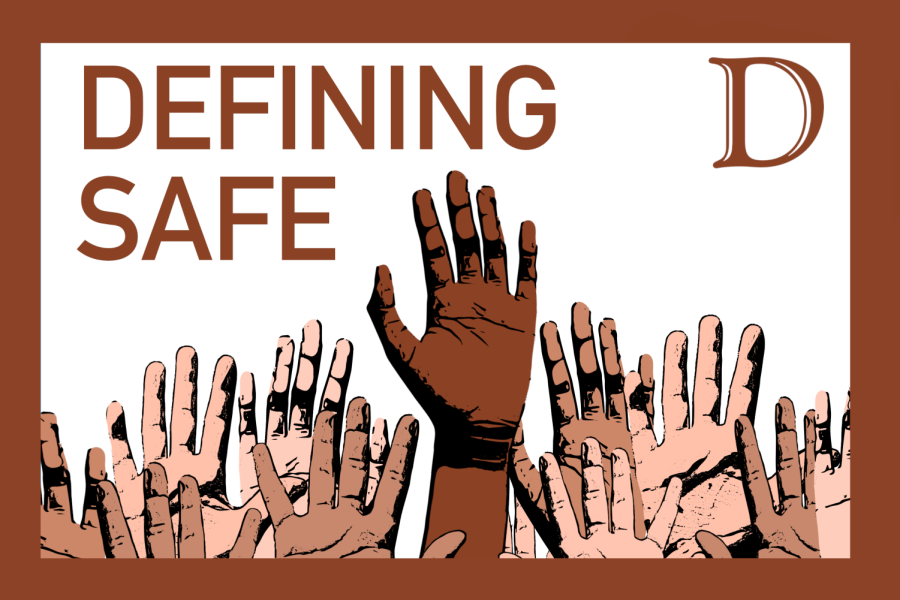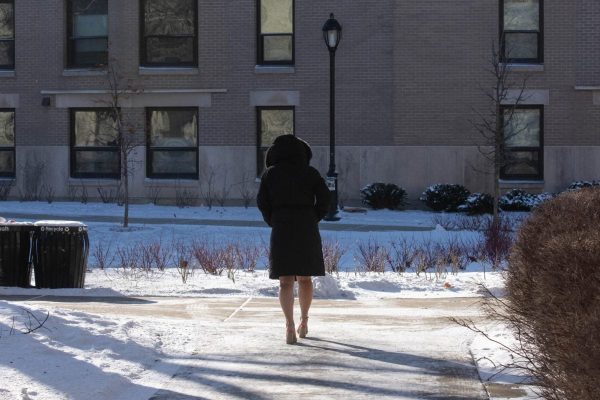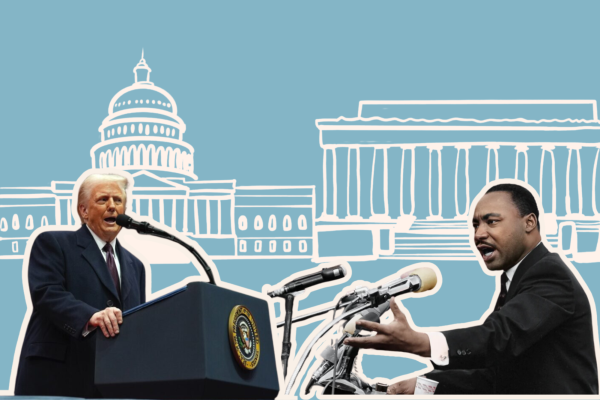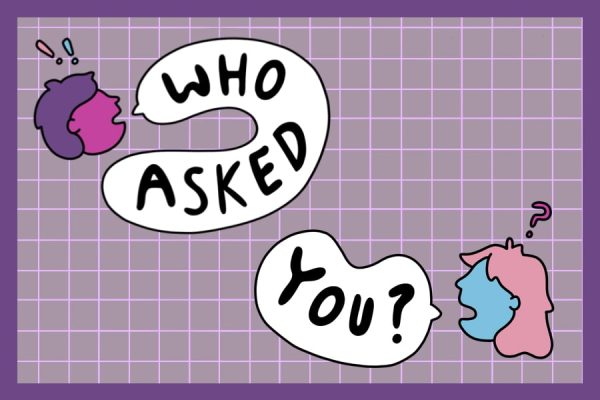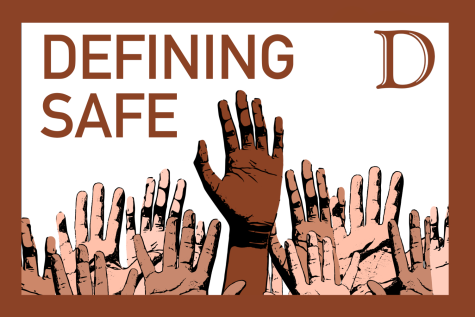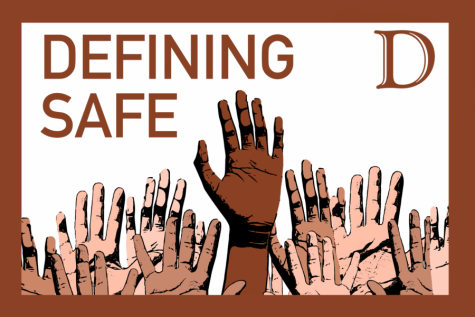Defining Safe: Practicing Proper Name Pronunciation
This episode of Defining Safe covers the frequent mispronunciation of non-Western names. In this episode, we look into the phonetics of pronunciation and hear the perspective of students whose names are often mispronounced.
ADITI RAM: I feel kind of like unaccepted in a way. They’re not even trying to get to know me in a way, even though it’s just my name.
[music]
ERICA SCHMITT: From The Daily Northwestern, I’m Erica Schmitt. This is Defining Safe, a podcast looking at the intersection of identity and student life at Northwestern. That was Communications sophomore Aditi Ram, a student who has heard her name mispronounced throughout her life.
ADITI RAM: Aditi Ram. My first name — it’s a Sanskrit name. So it’s like a syllabic language. The first syllable would be “uh,” the second syllable would be “dee,” the last syllable would be “thee.” And then my last name is three letters, which is pretty basic — “ROM.”
ERICA SCHMITT: Ram’s name comes from the Hindu religion — Aditi refers to the mother of all gods. Ram said there is an aspect of her name that is infinite because it means the mother of all things.
ERICA SCHMITT: While Ram likes her name, her parents called her “Anju” growing up. On the other hand, her friends called her different things like “Didi” or Aditi with nuances in pronunciation. Ram struggled with these differences.
ADITI RAM: My name has given me an identity crisis growing up. When I think of myself, I think of myself in those nicknamed personas — rather than Aditi — because Aditi itself has always been on the backburner for me. I feel like my true birth name has no real persona behind it.
ERICA SCHMITT: Ram said that sometimes she doesn’t like when people don’t make an effort to pronounce her name correctly. One of the most common mispronunciations she’s encountered is “Adita.”
ERICA SCHMITT: Ram explained how learning an unfamiliar word starts with sounding it out.
ADITI RAM: But when people get to names they’re not familiar with, they don’t take the time to sound it out in a way that seems like they’re not trying. My name is not that hard — it’s five letters. But a lot of the times, I’ll get like “Adita,” “Adia” — I feel like we’re making up rules we don’t need to make up.
[music]
DAMILOLA OLABANJI: I’m Damilola Olabanji.
ERICA SCHMITT: Weinberg sophomore Olabanji’s name is a Yoruba name from Nigeria, which translates to “God has given me wealth.”
ERICA SCHMITT: Like Ram, Olabanji has seen a variety of nicknames throughout her life. One that stuck was “Dami.”
ERICA SCHMITT: She said that sometimes people use nicknames to avoid learning her name.
DAMILOLA OLABANJI: People are like “Oh, I can’t even pronounce that, let me just get a nickname.” Then I’m like, “That’s literally just my name. Let’s give some, I guess, respect. That’s kind of rude.”You’re like “yeah, I’m not even gonna try.” But what if I’m like, “No, you can’t call me that.” So now what? You’re just not going to address me by my name?
ERICA SCHMITT: Olabanji said she gets exhausted having to explain her name to new people.
DAMILOLA OLABANJI: The very first thing you do when you meet people is introduce yourself, and already I feel like it was an obstacle. Like, I haven’t done anything yet, I have to now explain my name. And they’re like, “Oh, do you have a nickname?” It’s already like, I’m some type of issue because they have to figure out how to pronounce my name.
ERICA SCHMITT: She put the pronunciation on her Instagram to avoid this conversation in college. Olabanji said this prevents her from needing to correct people as often. There’s still a barrier though, as she said some professors and peers still take an excessive amount of time out of class to pronounce her name.
DAMILOLA OLABANJI: I’m glad that you were trying to pronounce my name right, but on the other hand, I felt like there was just too much focus on it that I kind of just want to move on from this and just get through this. It’s kind of bittersweet.
ERICA SCHMITT: Linguistics Prof. Jennifer Cole explained the role familiarity in pronunciation can play when it comes to names.
JENNIFER COLE: There isn’t any sense in which a particular sound is universally hard or easy. It’s a question of whether a sound is familiar or unfamiliar for a person, given the languages that they already speak.
ERICA SCHMITT: When there is a sound uncommonly used in your language, Cole said your voice may need to adapt.
JENNIFER COLE: It’s going to be more challenging to produce because you’re asking your vocal tract — which involves your tongue and your jaw and your larynx — to do something new, to coordinate all of its activities in a new way to produce a new kind of sound or a new sequence of sounds that you’re not already practiced with.
ERICA SCHMITT: One example Cole used is pronouncing a Chinese person’s name as an English speaker.
JENNIFER COLE: It is going to be really challenging because we have to pay attention to the pitch, and then make sure that we have registered what the correct pitch is for that name, and then learn to control that part of our own speech when we’re pronouncing that name.
ERICA SCHMITT: Ram said that if a person puts in an effort to pronounce her name correctly, she is not upset when they mispronounce her name slightly. But she struggles with the idea that people who have non-Western names alter their name’s pronunciation to accommodate others.
ADITI RAM: That kind of hurts me because then even in the house, that Western pronunciation is being perpetuated, which I personally feel should not be the case, especially in the household where you should be able to pronounce freely.
ERICA SCHMITT: Olabanji said she feels like she has to accept the mispronunciation of her name as a Black woman in the U.S.
DAMILOLA OLABANJI: I bring up the fact that I’m Black, like even, it’s visible, people don’t want to speak about it. But that also just ties into my name — it’s like, “Okay, here’s another thing that’s not like white Eurocentric that I have to accommodate to.”
ERICA SCHMITT: Cole said that even though it is common for people of other cultures to mispronounce names, she recognized that there is a cultural bias among languages.
ERICA SCHMITT: Cole said that there is a favoritism toward the English language because of its global use within science and other fields.
JENNIFER COLE: If you’re in the United States, and you’re a native speaker of English, and you’re meeting somebody who’s coming from another country or another linguistic background, then I think some people feel that the effort should be on the part of the person who’s entering into our cultural space. So that’s another kind of bias in terms of what expectations people have about who has to do the work to accommodate the different linguistic differences and cultural differences.
ERICA SCHMITT: People living in major metropolitan regions are exposed to cultural diversity. Cole said this can sometimes mean that people from cities may have more confidence in pronouncing unfamiliar words and names. She provided two steps to approaching new names.
JENNIFER COLE: The first step is to try not to be hung up on getting it just right and being perfect because the person you’re talking to is going to really appreciate that you’re making the effort. And the second advice is to be open to corrections, to be open to suggestions for what you might do differently in your pronunciation. And it’s trial and error.
[music]
ERICA SCHMITT: From The Daily Northwestern, I’m Erica Schmitt. Thanks for listening to another episode of Defining Safe. This episode was reported and produced by me. The Audio Editor of The Daily Northwestern is Lawrence Price, the Digital Managing Editor is Angeli Mittal and the Editor-in-chief is Jacob Fulton. Make sure to subscribe to The Daily Northwestern’s podcasts on Spotify, Apple Podcasts or SoundCloud to hear more episodes like this.
Email: [email protected]
Twitter: @eschmitt318
RELATED STORIES:
— The Weekly: Week Four Recap
— Huang: Please Stop Calling Me “You”
— Are you a “Xiao Yu” or a “Jane?”
